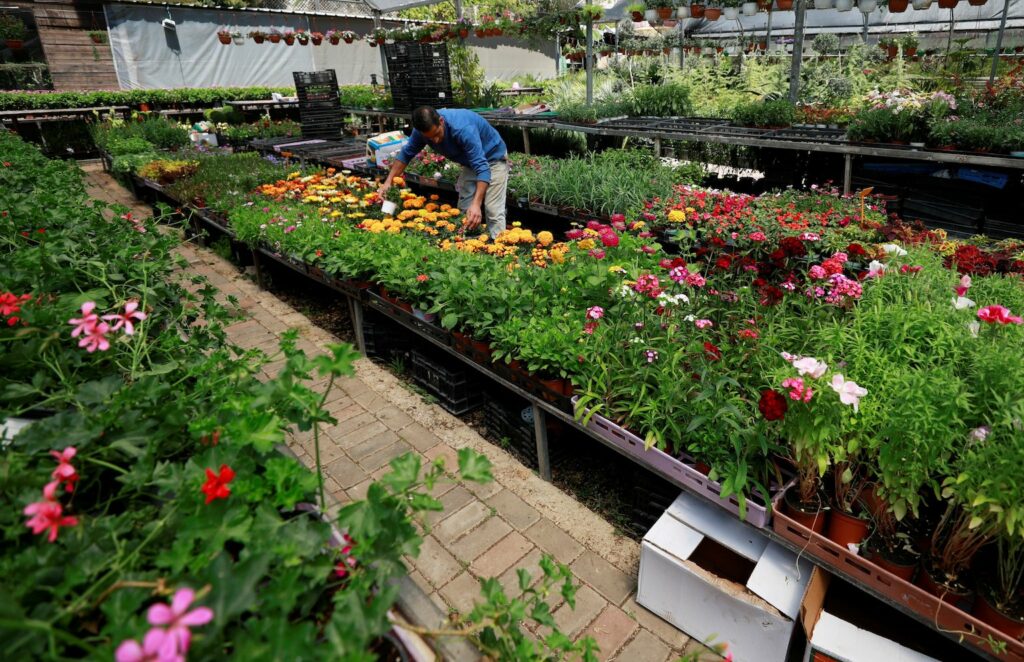For people who prefer to keep their job and their faith separate, the Catholic Church poses a massive challenge. Catholic teaching simply does not see it that way. This isn’t about being a vocal believer at work, but about how work itself is an essential expression of human dignity.
The Church’s body of teaching on work and the dignity and rights of workers bridges from the very beginnings of our tradition to contemporary phenomena and the most cutting-edge advancements in society.
The Genesis creation stories depict God as working and proclaiming the fruits of labor good. Being able to work and delight in that meaningful creative process is part of what it means to be made in the image and likeness of God.
In his 1981 encyclical “Laborem Exercens,” St. John Paul II wrote that the Book of Genesis is the first “gospel of work” and that God also experienced work on Earth as Jesus, a carpenter.
Work played a central role in birthing the entirety of modern Catholic Social Teaching. Pope Leo XIII’s landmark 1891 encyclical “Rerum Novarum” (“Of New Things”) addressed the challenges posed to working people and society overall by the Industrial Revolution.
He laid a foundation that reverberates through Catholic teaching to present day. What we would now call wage theft, Pope Leo XIII addressed with: “To defraud anyone of wages that are his due is a great crime which cries to the avenging anger of heaven.”
“Rerum Novarum” was so influential to Catholic thought that it sparked numerous “sequels” – subsequent popes applying the Gospel to other signs of their times. The teachings enshrined in these and other encyclicals are enumerated in the 2004 Compendium of the Social Doctrine of the Church.
This Vatican document describes work as a fundamental right and a good and that workers have certain rights. These include: the right to a just wage, to rest, to a safe work environment, to unemployment assistance, to senior pensions, to health care, to disability insurance, to parental leave and benefits, to organize and to strike.
These rights carry with them implications for how society should be structured, as well as what the Church advocates for in the public square. The principles of Catholic Social Teaching not only describe how individuals, businesses, governments and religious institutions can live in balance, but also challenges everyone, individually and systemically, to work toward the common good in solidarity with one another.
Catholic Social Teaching exists to promote human flourishing, which is one of those know-it-when-you-see-it concepts. Or not see it, as the case may be.
A person who cannot work because no jobs are available is not flourishing. A person who has to work multiple jobs essentially nonstop just to get by is not flourishing.
A young adult who has no health insurance because their employment consists of a patchwork of short-term, part-time gigs is not flourishing. A family that is technically meeting its need but also continually in a state of scarcity, insecurity and social marginalization is not flourishing.
The compendium states: “The economic well-being of a country is not measured exclusively by the quantity of goods it produces but also by taking into account the manner in which they are produced and the level of equity in the distribution of income” (No. 303).
Income inequality, a reality that has worsened precipitously in recent decades, has drawn criticism from Church leaders. The U.S. bishops’ 2013 Labor Day statement said that current imbalances “demand boldness in promoting a just economy … by creating jobs that pay a living wage and share with workers some profits of the company.”
Pope Benedict XVI wrote prophetically of the perils of rampant inequality in his 2009 encyclical “Caritas in Veritate,” noting that “not only does social cohesion suffer, thereby placing democracy at risk, but so too does the economy, through the progressive erosion of ‘social capital’: the network of relationships of trust, dependability and respect for rules, all of which are indispensable for any form of civil coexistence” (No. 32).
This is why Pope Francis carries on the tradition of applying the Gospel to ever newer “new things,” including the widespread disruption of COVID-19, which has thrown millions out of work, and developments in artificial intelligence that could make entire job sectors obsolete in decades.
In November 2020, Pope Francis said progress in artificial intelligence should always be “joined to the common good.” He has endorsed universal basic income proposals – regular monetary payments from the government – as a way of helping people flourish. Whether it’s the factories of the Industrial Revolution or lines of binary code, the Church opposes workers’ humanity being sliced and diced by systems.
Work is a sacred space for flourishing, not a backdrop for exploitation and abuse. More than a way to pay the bills or sustain ourselves, the Church challenges us to make work where we become who God always intended us to be, and in doing so, get to know him better. The God who labored to enjoy the fulfillment of his creation wants the same for all of us.
Clemmer is a writer and communications professional based in Indiana. He edits Cross Roads magazine for the Diocese of Lexington.

